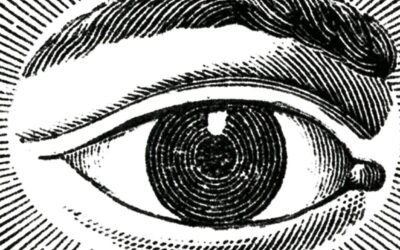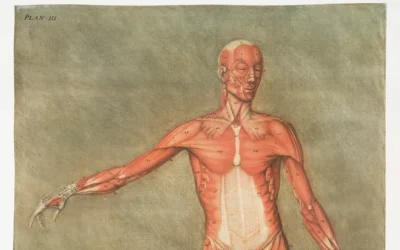How to Recognize Schizophrenia
Schizophrenia is a complex mental health disorder that significantly impacts an individual’s thoughts, emotions, and behavior. By gaining a comprehensive understanding of the condition and implementing effective strategies, mental health professionals can provide better support and improve the quality of life for individuals living with schizophrenia.
Early Signs and Diagnosis
Recognizing the early signs of schizophrenia is crucial for prompt intervention. Common indicators include:
- Changes in behavior
- Social withdrawal
- Unusual beliefs or perceptions
- Disorganized speech
- Difficulties with concentration or memory
Individuals exhibiting these signs should seek professional evaluation and diagnosis from a qualified mental health specialist.
Prodromal Phase in Schizophrenia
The prodromal phase precedes the onset of full-blown psychotic symptoms. During this phase, individuals may exhibit subtle changes in their thoughts, feelings, and behaviors, such as:
- Social withdrawal
- Deteriorating academic or occupational performance
- Increased irritability or agitation
- Changes in sleep patterns
- Reduced motivation or interest in activities
- Difficulty concentrating or focusing
- Mild hallucinations or unusual beliefs
Mental health professionals, caregivers, and individuals themselves should be aware of these early warning signs to facilitate early intervention and prevent or minimize the impact of a psychotic episode.
Factors Influencing the Prodromal Phase
The onset and intensity of the prodromal phase can be influenced by several factors:
- Family history of dopamine-related disorders (e.g., schizophrenia, bipolar disorder)
- Substance abuse, particularly psychoactive substances like cannabis
- Personality types with higher levels of neuroticism or introversion
- Gender differences, with males often experiencing earlier onset and more pronounced symptoms
Recognizing these factors can aid in early identification and intervention, leading to better outcomes for individuals at risk of developing schizophrenia.
Treatment Approaches
Treatment for schizophrenia typically involves a combination of:
- Antipsychotic medications to manage symptoms and prevent relapses
- Psychotherapy, such as cognitive-behavioral therapy (CBT), to develop coping mechanisms and improve communication skills
- Family support and education to provide a strong support network
- Psychosocial interventions to enhance problem-solving abilities and manage stress
Individuals should adhere to their prescribed medication regimen and consult with their healthcare provider regularly to evaluate effectiveness and potential side effects.
Injectable Medications
Injectable antipsychotic medications offer an alternative option for individuals with schizophrenia. These medications are administered at regular intervals and can improve medication adherence and reduce the risk of relapse. Healthcare professionals can discuss the benefits and potential risks of injectable medications with individuals to determine the most appropriate treatment approach.
Addressing Side Effects
Common side effects of antipsychotic medications may include:
- Weight gain
- Sedation
- Sexual dysfunction
- Movement disorders
Healthcare providers can work closely with individuals to develop strategies to mitigate these side effects through medication adjustments, lifestyle modifications, and regular check-ins.
Why Functioning Drops After Psychotic Episodes
Individuals with schizophrenia may face a decline in their level of functioning after experiencing a psychotic episode due to:
- Effects of the episode itself
- Residual symptoms
- Side effects of medication
- Discontinuation of medication, which increases the risk of relapse
Recognizing the prodromal phase is crucial for implementing interventions to prevent or minimize the impact of the episode and preserve the individual’s level of functioning.
Support and Community Involvement
Building a supportive environment is essential for individuals with schizophrenia. This can be achieved through:
- Friends, family, and community support groups providing understanding, empathy, and encouragement
- Education and raising awareness about schizophrenia in society to combat stigma and promote acceptance
- Creating a more inclusive society that supports the well-being and empowerment of individuals with schizophrenia
Understanding and supporting individuals with schizophrenia requires a multifaceted approach. By recognizing early signs, seeking timely diagnosis and treatment, exploring alternative options such as injectable medications, addressing side effects, recognizing the prodromal phase, and fostering a supportive community, mental health professionals can make a positive impact on the lives of those affected by this condition. Working together to increase awareness, provide empathy, and ensure access to appropriate resources enables individuals with schizophrenia to lead fulfilling lives.
Bibliography:
- American Psychiatric Association. (2013). Diagnostic and Statistical Manual of Mental Disorders (5th ed.).
- Tandon, R., et al. (2013). Definition and description of schizophrenia in the DSM-5. Schizophrenia Research, 150(1), 3-10.
- McGorry, P. D., et al. (2009). Intervention in individuals at ultra-high risk for psychosis: a review and future directions. Journal of Clinical Psychiatry, 70(9), 1206-1212.
- Leucht, S., et al. (2013). Comparative efficacy and tolerability of 15 antipsychotic drugs in schizophrenia: a multiple-treatments meta-analysis. The Lancet, 382(9896), 951-962.
- Addington, J., et al. (2007). The prodromal stage of psychotic illness: observation, detection or intervention? Journal of Psychiatry & Neuroscience, 32(1), 22-33.
Further Reading:
- Lieberman, J. A., & First, M. B. (2018). Psychotic Disorders. New England Journal of Medicine, 379(3), 270-280.
- Kahn, R. S., et al. (2015). Schizophrenia. Nature Reviews Disease Primers, 1, 15067.
- Fusar-Poli, P., et al. (2013). The psychosis high-risk state: a comprehensive state-of-the-art review. JAMA Psychiatry, 70(1), 107-120.
- Birchwood, M., et al. (2013). Early intervention in psychosis: keeping the body in mind. British Journal of General Practice, 63(610), 278-279.
- Goff, D. C., et al. (2017). The Long-Term Effects of Antipsychotic Medication on Clinical Course in Schizophrenia. American Journal of Psychiatry, 174(9), 840-849.
- Mueser, K. T., & McGurk, S. R. (2004). Schizophrenia. The Lancet, 363(9426), 2063-2072.
- Häfner, H., et al. (2003). The epidemiology of early schizophrenia: Influence of age and gender on onset and early course. British Journal of Psychiatry, 182(S42), s3-s14.
- Remington, G., et al. (2016). Treating Negative Symptoms in Schizophrenia: An Update. Current Treatment Options in Psychiatry, 3, 133-150.
- Howes, O. D., & Murray, R. M. (2014). Schizophrenia: an integrated sociodevelopmental-cognitive model. The Lancet, 383(9929), 1677-1687.
- Hasan, A., et al. (2012). World Federation of Societies of Biological Psychiatry (WFSBP) Guidelines for Biological Treatment of Schizophrenia, Part 1: Update 2012 on the acute treatment of schizophrenia and the management of treatment resistance. The World Journal of Biological Psychiatry, 13(5), 318-378.
How the Shadow Shows up in Dreams


















0 Comments